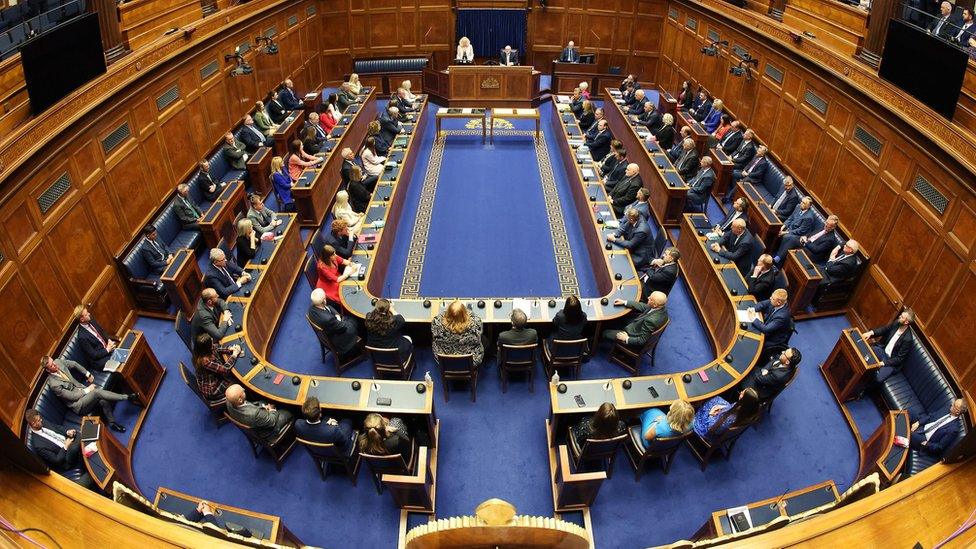NI Protocol: Could Stormont veto be key for DUP to support deal?
- Published

The support of DUP leader Sir Jeffrey Donaldson will be key to the success of any deal on the protocol
Is the UK government poised to reach for a well-used Stormont veto tool to secure the Democratic Unionist Party's (DUP) support for a deal on the Northern Ireland Protocol?
Tackling the "democratic deficit" in the protocol has been a key DUP demand.
It is laid out in one of the DUP's seven tests that any deal must pass before the party will back it.
It states that any deal "must give the people of Northern Ireland a say in the making of the laws which govern them".
One plan being talked about around the edges of the negotiations would involve a variation of Stormont's controversial petition of concern.
It is designed to protect the views of those in the minority and block majority rule.
It requires 30 assembly members to sign the petition to ensure that approval can only be given with cross-community support.

What is a petition of concern?

A petition of concern needs the signatures of 30 assembly members before it can be introduced
Introduced as part of the Good Friday Agreement, the procedure was originally designed as a way to safeguard minority rights in the Stormont assembly.
If a petition of concern is presented to the assembly Speaker, any motion or amendment will need cross-community support.
In such cases, a vote on proposed legislation will only pass if supported by a weighted majority (60%) of members voting, including at least 40% of each of the nationalist and unionist designations present and voting.
Effectively this means that, provided enough MLAs from a particular community agree, that community can exercise a veto over the assembly's decisions.
A valid petition requires the signatures of 30 MLAs.

Could that tool now be used to try and block any new EU rules or regulations without the full support of Stormont?
It would again only require 30 assembly members to object to a regulation and raise that objection with the government.
The government would then be in a position to challenge that regulation and withhold support in the Joint Committee with the EU, which oversees the operation of the protocol.
Such a solution would put power back in the hands of Stormont politicians and the 30-signature threshold would allow unionists alone to object to regulations.
But it would not amount to a Stormont veto in itself.
Rather it would be for the government to pursue the issue with the EU.
It is not clear if such a mechanism has been formally tabled in the talks with the DUP, but it has been raised in some quarters.
- Published18 February 2023

- Published18 February 2023
